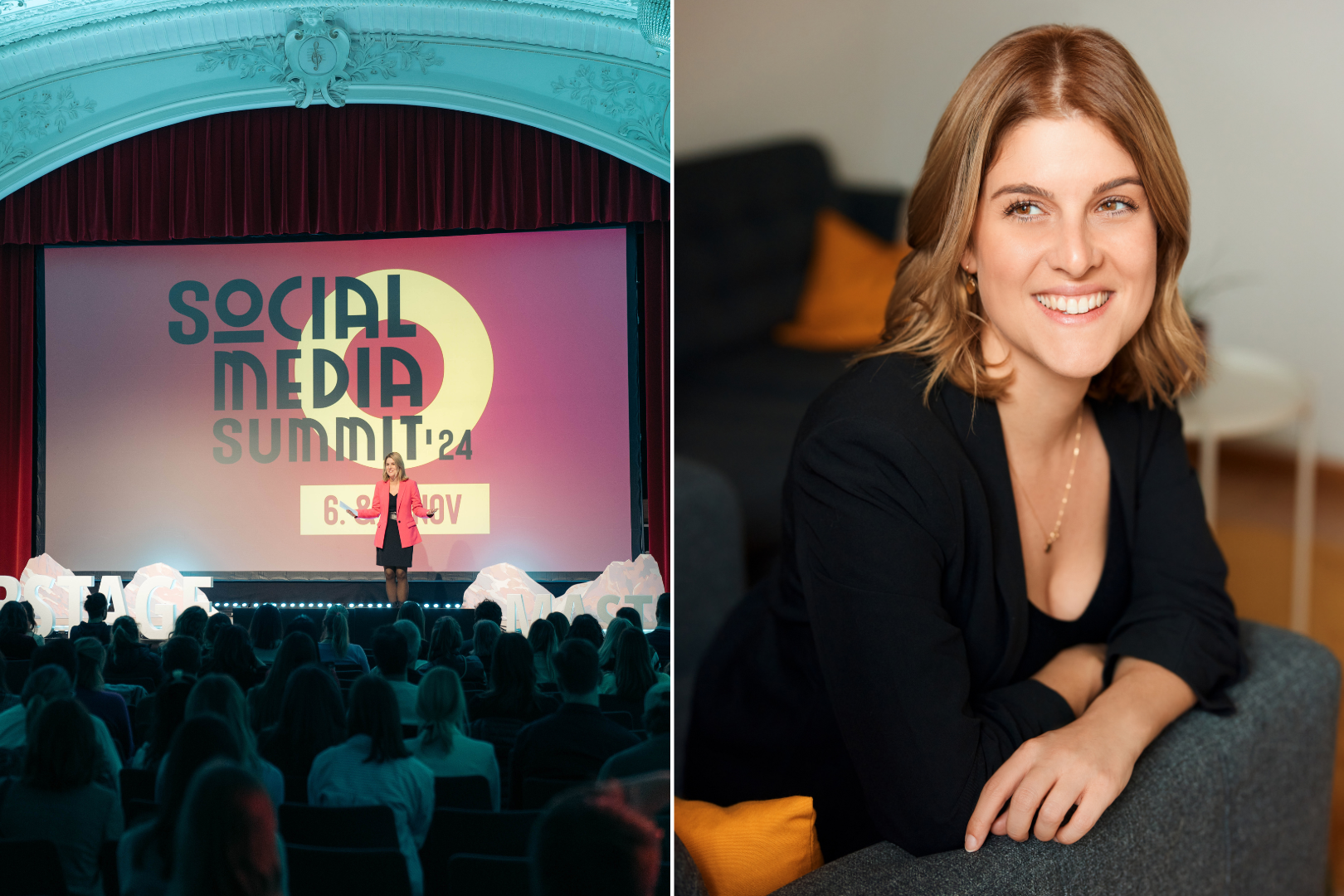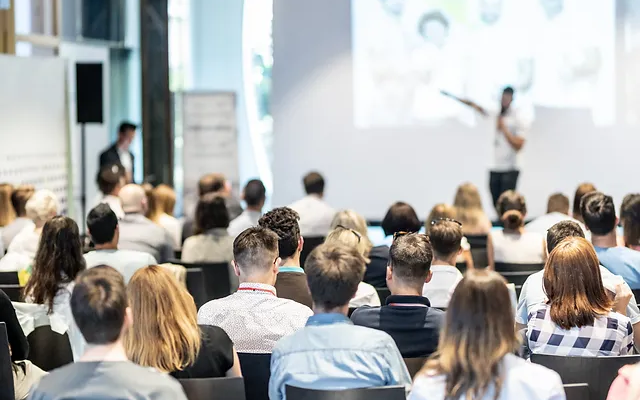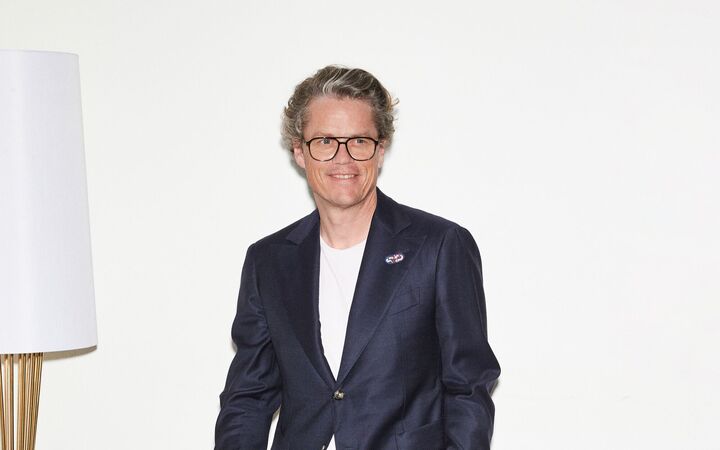Live, loud, relevant - Tanja Herrmann on the future of marketing

Tanja, you organize two of the most exciting conferences in the Swiss marketing world: one on artificial intelligence and the other on the world of social media marketing. How did you come up with the idea of organizing conferences and why exactly these two subject areas?
I originally come from the world of event organization. When I set up my own influencer marketing consultancy House of Influence (then still WebStages) eight years ago, I first wanted to find out whether people in Switzerland were interested in influencer marketing at all. So I organized a conference on the topic. When the topic of AI came up, I thought it was a great opportunity to use all the experience from my first conference - the Social Media Summit - to create a second, independent format. One that is specifically aimed at marketers - not too technical, focused on the aspects that directly affect marketers.
You have been in the event scene for many years. In your opinion, how has live marketing changed in the last 5 years?
During the pandemic, the event scene briefly went into hibernation. The idea of coming together in a closed room with several hundred people was suddenly characterized by uncertainty and fear. This gave Switzerland a massive digital boost, meaning that platforms such as LinkedIn and technologies such as Teams benefited massively. But as soon as it was safe to come together again, people came in even greater numbers than before the pandemic. My opinion has therefore not changed, but has confirmed that the exchange, in which the person is completely in front of me, is incredibly valuable and still represents a need.
What you can say, however, is that people's diaries feel increasingly full. So if you want them to make time for you, you have to offer something. And a glass of Fendant and a "sausage in batter" are no longer enough.
Additional question: And what would you add in the context of the rise of AI and social media?
AI tools and social media connections can make sharing and maintaining relationships easier and help to find new exciting people. Even purely digital connections can be incredibly valuable - and yet it doesn't feel the same. So often you hear: "How nice to finally see you in person". It adds an extra dimension to relationships that creates trust and commitment.
The "AI in Marketing Conference" took place for the first time in 2025 and brings together marketing managers and tech experts. In your opinion, what are currently the most exciting use cases for AI in live marketing?
If you want to organize exciting conferences, you have to understand what people are interested in. That means a lot of research - and that in turn means data - and that's where AI comes in.
AI integrations can provide a personalized conference experience. From a digital concierge that searches for the sessions relevant to you from the program, automatically takes notes on the presentations for you or creates a list of people you should talk to.
Will there be a sequel to the "AI in Marketing Conference" and if so, what would you like to do differently the next time it is held?
After the rush of the first edition, we are very much looking forward to the sequel on April 29, 2026. I would do one thing differently: the internet connection. Despite the additional bandwidth and LAN connections that we had installed as a precaution, it was already lost at check-in. And as the badge printers communicate with the scanners via WiFi, check-in was very, very slow. Not exactly the first impression you want to make.
What makes an event successful for you - both from an organizer's and a participant's perspective?
If people could go home and say: "That was worth it, I'll be back." The internal motto of both conferences is "Further training in event format". My aim is to lovingly curate a program that answers the participants' questions so that there is enough for everyone. And all of this in a location that invites people to exchange ideas. And to make sure people are really happy, something else is needed: good food.

What difference does it make for you as an event planner to organize a conference in the mountains (like the Social Media Summit) and one in the city (like the AI in Marketing)?
The biggest difference is the commitment we demand from the participants. At a one-day conference in the middle of the city, people decide spontaneously whether they want to attend and may come a little later.
For a two-day conference in the mountains, where you also need a hotel room, people buy a ticket much earlier because it's a much more conscious decision. The date is usually already fixed in the calendar a year in advance.
Organizationally on our side, it's mainly the fact that we have everything under one roof in Zurich. In other words, one location, one contact person. In Engelberg, we are spread over five locations. Each one is managed by a different person. The hotel rooms are also managed by the tourism organization.
This massively increases the complexity. So we are already traveling to Engelberg in May to go through the schedules and requirements with everyone involved in the village.
In your opinion, what mix of content, networking and experience works best at corporate/business events today?
We experiment with individual elements at each conference edition. Not all experiments have been successful, what I have learned from eight years is this:
People don't want too much choice, otherwise they feel like they're missing out on too much. So if possible, don't offer too many sessions in parallel or offer certain ones more than once.
At traditional conferences, with a long-standing industry audience, the participants already know each other. They approach each other directly, skip the presentations and chat instead. But with a younger audience or an industry that is still forming, the participants don't know each other yet. Younger participants in particular, who are attending a conference for the first time, don't like approaching unknown people on their own. That's why you need a networking hook that loosens things up a bit. For example, we pick up the participants at the Social Media Summit before the conference via group chats, where they can exchange ideas virtually in advance and then meet up at meeting points.
We also see that the classic "trade fair stands" have had their day in our industry. People come to learn something. So they sit in lectures and don't spend their time at supplier stands. People win with knowledge that is shared - not with sales pitches.
You are an entrepreneur, organizer, speaker - what does a typical working day look like for you - or does it even exist?
I would say there are three types of days:
Option 1: I spend 8 to 9 hours a day in calls and meetings, discussing strategies for influencer campaigns, collaborations for the conferences and specific questions from the entire team. In between, I answer emails and approve contracts, concepts, invoices, etc.
Option 2: I'm teaching - whether at a university or in workshops directly with customers
Option 3: I block out my calendar to focus on strategic topics. I can't do that between two calls, I need time to think in different directions - and play around with these ideas a bit.
You work with many social media experts, brands and agencies. What trends do you currently see in social media marketing?
For the longest time, social media marketing was something that was still somewhat ridiculed. There were a few pratkitants who were supposed to do something "funny" for their own social media channels. Then they realized how much reach could be achieved here, so they started to focus on "awareness" topics. But here, too, there was still little strategic ambition in many places. For several months now, we have seen that data is finally being given more weight and social media is being understood as a performance channel. If you also stop thinking of social media in terms of "organic" and "paid", you will be a massive step ahead of the competition.
What we also see, however, is that this is no longer feasible, especially for very small companies that have a maximum of one person in marketing who is responsible for organizing the website, brochures and customer events in addition to social media. The complexity and effort required to keep up successfully has increased massively. The bar is now set high. This presents smaller companies in particular with an important decision: Which channels do we really need, which can we afford, and what are we deliberately not doing.
What has been the most surprising, beautiful or emotional moment for you at one of your conferences so far?
As someone who earns his living with social media, I see what kind of data we are legally allowed to collect. AI has exacerbated the issue. When I moderated a panel at the Social Media Summit on "AI - Opportunities and Threats" before 2023, the final question was about whether the opportunities of AI justify the risks. As a moderator, it's not really appropriate to give your own opinion. But when even the most critical panel guests remained reserved, I didn't want to leave it at that. So I expressed my concerns in front of over 400 participants. I explained why I thought it was so important to ask critically what could happen if the data was used with the most malicious intent, and whether we can really afford to sow even more distrust in our society if it is unregulated - and therefore without enforceable legal consequences. In the middle of my unplanned "speech", people started clapping. To have created a platform where we as an industry can openly and critically question the status quo and discuss solutions with people from research and practice, and to see that this met with so much approval, was the most emotional moment for me personally so far. It's not about having all the answers yourself, but about giving space to critical questions as well.
When you look back on your previous events - what would you do differently today and what are you particularly proud of?
In the beginning, the social media conference - which focused exclusively on influencer marketing in its first year - was ridiculed in the marketing industry. My phone was hung up and inquiries usually went unanswered. The fact that social media marketing is a specialist area in its own right was not really seen outside of our still small bubble. Even when we had been sold out for weeks in advance and were already one of the largest specialist conferences in Switzerland with almost 800 participants, we were still somewhat dismissed as a "hobby get-together".
Funnily enough, this changed abruptly when we launched the second format, the AI in Marketing Conference. When people saw what we had already built up with the other conference, people suddenly started calling us. That was very unusual.
I wouldn't do anything fundamentally different, but simply continue to focus on how I can put together the most relevant content for the respective industry and package it into an event with a lot of love.
What can we expect from you in the future - are there any new formats, ideas or visions that you would like to implement soon?
There is actually already a new project. We launched the Savoir Marketing Seminars parallel to the second conference. After seeing how much interest we had in the interactive masterclasses at both conferences, the idea was to take this "training in an event format" one step further. We are now offering "learning that feels like a vacation". With the network of national and international speakers that we have built up over the years for the conferences, we have now put together various 4-day seminars in the most beautiful hotels in Switzerland. From Generative AI to holistic marketing strategy. We were also able to win over our university partner, the HWZ, so that all seminars are certified by the HWZ. This means we can now offer access to well-curated content in addition to the conferences, without losing out on networking - because every seminar day is rounded off with a supporting program such as wine tastings or ibex safaris. This new format should keep me busy for the time being.
If money, space and time were no object - what event dream would you like to realize one day?
Until now, neither money, space nor time has stopped me from pursuing a dream. I like to play around with new ideas and find out where the hurdles would be. If I can't let go of an idea, then I start to find out what we need to do to make it possible. One step at a time. Sometimes that takes a little longer and it's not the kind of "huge risks" that happen from one day to the next - but they are paths that lead to the goal.


